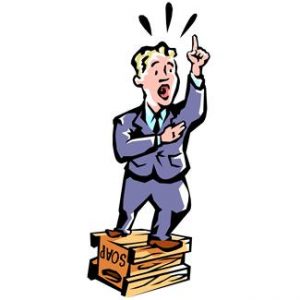With Bette J Freedson
Jagged edges of pain were audible and palpable in Kris’ voice when he initially called.
“I need therapy. But . . . I can’t come now . . . I’m . . . in a hospital. I’d like to call you again . . . when I’m out.”
I met Kris two months later after his discharge from a local psychiatric program. No longer at risk for self-harm, Kris was a tall, attractive man in his late thirties with a story of misery. Kris talked about childhood bullying and his recent marital demise that had caused him financial and emotional devastation. Yet, regardless of these past and current traumas, Kris possessed strengths.
A keen mind had enabled Kris to complete a successful stint in the military, to pursue interests in languages and history, and to skillfully comply with complex directives of a high-pressure job at a postal facility. Most notably Kris exhibited an innate ability to size up a situation, a coping resource that had given him the intuitive presence to seek help when facing potentially catastrophic despair. Yet, despite Kris’s manifest strengths and accomplishments, he was struggling to maintain a solid, coherent sense of basic worth.
Key aspects of Kris’s resourcefulness— his acute situational awareness and a canny cognitive perceptiveness— remained outside of his otherwise positive self-assessment. Because of his early abuse and these disowned strengths, Kris’s sense of himself as a competent survivor hobbled his self-esteem.
Kris’s moods seemed buffeted by the changing whims of his current relationship, causing him to doubt his attractiveness, his relational prowess, and his ability to create a newly fulfilling life. Given these emotional oscillations, Kris’s moods alternated between periods of slumped and teary-eyed discouragement and periods of bright-eyed hopefulness, when he held himself tall, his body flexing, sturdy with determination.
As I pondered how I might help Kris integrate the disowned aspects of his resilience, I thought about what Jeffrey Zeig, Director of the Milton Erickson Foundation, and my mentor, refers to as being in a negative trance. In essence, severe abuse and painful losses had essentially caused Kris to be out of touch with his innate worth, instead he was somewhat obsessively focused on not wanting to make another “mistake.”
In fact, when, on one occasion, I’d told Kris that his worth was innate, not inert, he’d chuckled, seemingly knowingly. Other times when I pointed out ways in which Kris was a resilient survivor, his eyes brightened and stayed momentarily locked on my face as if a fleeting realization had passed through his body. But the emotional swings continued, indicating to me that a direct approach was not likely to wake him up.
Apparently, the cognitive distortions, like the remnants of abuse, were firmly embedded in his body. I centered myself in the knowing that a soul wisdom and somatic healing approach was likely to be the right key. Now I’d stay alert for the opportunity to help Kris shift into a more resourceful and integrated self-state.
Ironically, the idea came from another patient, Emily, the subject of my blog earlier this year. The morning of Kris’s next appointment, Emily had entered sparkling with energy that vibrated between the molecules in the spring air. Flushed rosy with excitement, she shared a story that seemed as if it might be just what Kris needed.
Later that day Kris opened with anxiety about relationship stress with his ex-wife and with his current girlfriend. Maybe he’d try to reconcile; and yes, the new relationship was really over . . . “But I don’t want to make another mistake!”
Seeing Kris’s eyes tighten and his back stiffen, I decided that psycho-education about co-dependent ambivalence might prove too confrontational. Sitting with that thought, my awareness travelled back in time to the felt sense of resonance, the “AhHa” that had landed in the center of my chest when Emily had recounted her experience at a large store managers’ conference the week before. I decided to give Emily’s story a try.
“Kris, when people have suffered hurt like you’ve experienced, worry is normal. Sometimes worry can help ward off mistakes, and sometimes it’s a waste of time. You are free to worry, but there might be another way to think about choices you’ve made and those you might make going forward. I’d like to invite you to go into trance, and then I will tell you more.”
Having had positive experiences of trance in other sessions, Kris readily accepted, closing his eyes and leaning back on the couch, indicating his availability for trance and the therapy to follow.
“Recently someone told me about a keynote speaker at a conference she’d attended. It was the conductor of the Boston Philharmonic Orchestra, Benjamin Zander, who gives talks on The Art of Possibility. Zander told the group that when a member of the orchestra makes a mistake or hits the wrong key, he doesn’t criticize, but rather says, ‘Fantastic!’
According to Zander, mistakes are fantastic possibilities.” Here, to emphasize the message, I threw my arms and hands up by my head like a soapbox preacher, as Emily had done that morning.
“Perhaps everything that has happened, and the decisions you will make are and will be fantastic possibilities! Maybe you can’t make a mistake because a mistake is really fantastic!”
At this point, Kris’s torso seemed to melt into the couch as he emitted a “Hymph” that I took to mean, I got it.
“Your body is intelligent; it knows the truth about your resilience and your worth; your mind is catching up.”
A sigh on the couch, and a slight a twitch of Kris’s eyes, were followed by a soft, “I know.”
“That’s fantastic, Kris. Now please take a moment to locate a felt sense of what you know in your body.”
“Here . . . ” He said, crossing his hands and moving them shoulder-to-shoulder across his chest.
“Excellent. Now, you can imagine that from your chest and shoulders, through your heart, and to your mind, there is a route that you can travel anytime you want to deliver a message about your resilience and worth. This somatic connection can be a passport to a destination of emotional stability within your true self.”
It took seconds before Kris, eyes still closed, started to smile.
“I guess I can’t screw up.” He said, slightly chuckling. “I’m okay. I feel it here (indicating the left side of his chest.) I feel different. I know I’m going to be okay regardless of what I do and what happens.”
“You can begin to wake up now, Kris. Because you know what? That’s fantastic!”
Bette J. Freedson, LCSW is a clinical social worker, certified group psychotherapist, and the author of Soul Mothers’ Wisdom: Seven Insights for the Single Mother. Bette’s specialties include stress management, parenting issues, recovery from trauma and the development of intuitive insight. She maintains a private practice in southern Maine with her husband, Ray Amidon, LMFT.







